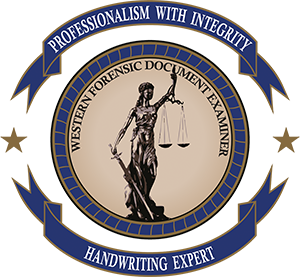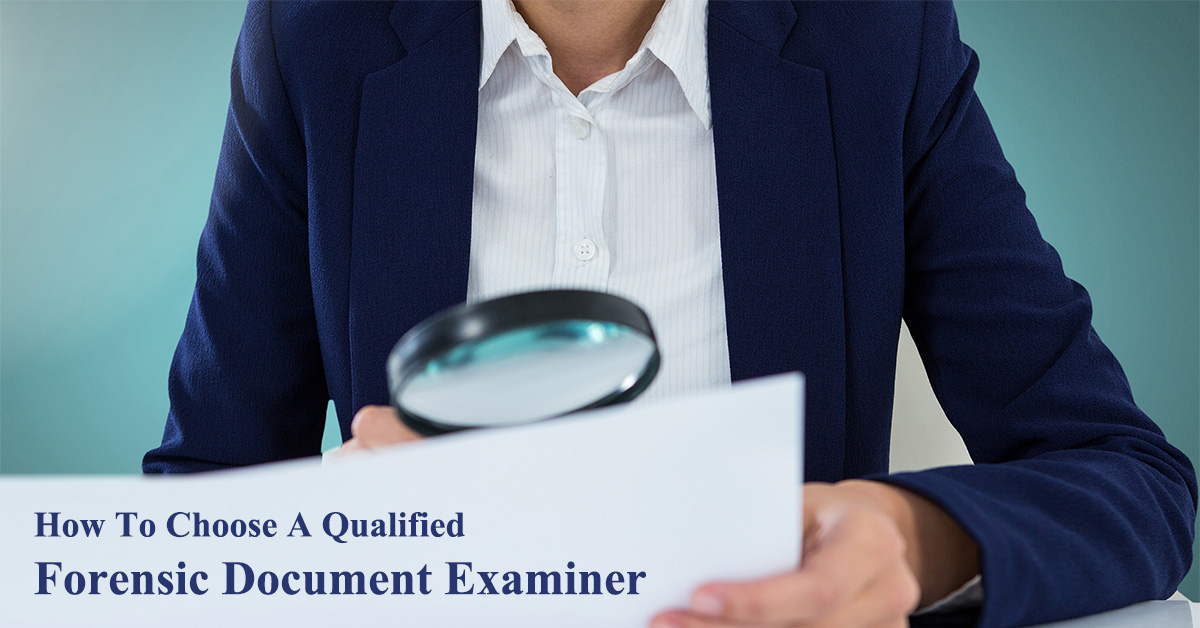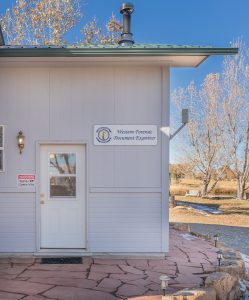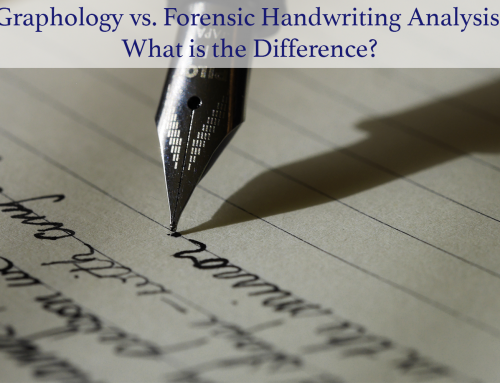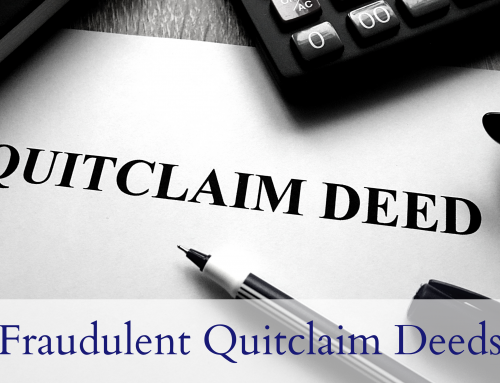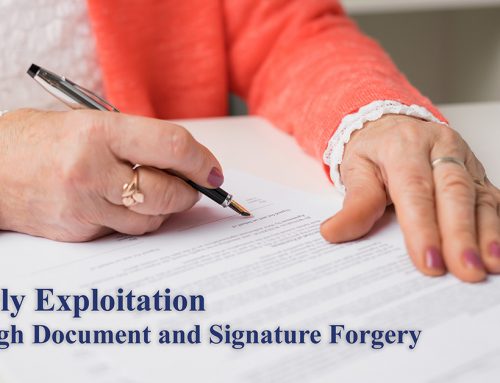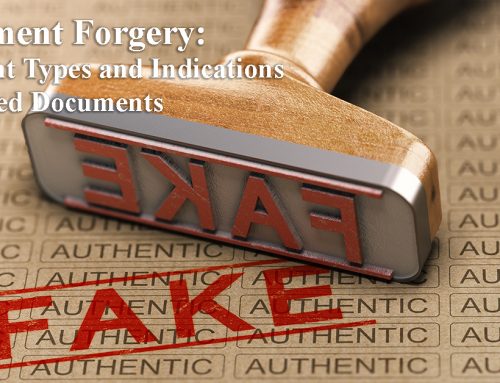Your potential expert can make or break your case, so choosing the right Qualified Forensic Document Examiner is crucial. Here are some tips for what to look for and what to ask when choosing your Forensic Document Examiner.
Is Your Document Examiner Court Qualified?
Has your Document Examiner been Court Qualified in a Court of Law? Has he/she been admitted by a Judge as an expert? If so, how many times? Just because a Document Examiner has testified 60, 70, or 80 times does not mean they are any more qualified to testify than someone who has testified 10- 15 times. If a Document Examiner has testified many, many times over a short period of time, ask yourself why. Are they a hired gun? Or do they render an opinion always in favor of the client? Do they always go where the money goes? Opposing counsel will be able to find these questions out, and if your Document Examiner proves to be someone of this quality, you may lose your case.
Is Your Expert Certified?
Certification is important and will show that your expert has been thoroughly tested in all aspects of the field of Forensic Document Examination. Testing is done through reputable organizations in the Document Examination Fields and not through online testing. The testing is extensive and will usually take 5 to 8 hours to complete.
Is Your Document Examiner Taking Continued Education Classes??
Reputable organizations will have monthly or quarterly classes. Also available to Document Examiners are yearly conferences or seminars for Continued Education. In our ever changing world and technology Document Examiners need to be educated on changes, new information and new technology. It is necessary to go beyond their first initial period of education and training.
Involvement?
Being involved in a Reputable Organization shows the Document Examiner is not a loner and is ready to identify with other peers. It is important for the Document Examiner to have their work peer reviewed. Certainly not all cases have to be peer reviewed but must be open to a peer review if needed. It also shows the Document Examiners willingness to be involved with CE such as conferences or monthly or quarterly classes. Some organizations are SAFE (Scientific Association of Forensic Examiners), IADE (International Association of Document Examiners), NADE (National Association of Document Examiners), AFDE (Association of Forensic Document Examiners), ABFDE (American Board of Forensic Document Examiners) are what you can look for. In these organizations you will find a set of standards to follow, such as an accumulation of points needed each year to be able to renew your membership in the organizations, CE classes, an Ethics Board etc… So you are not just paying a $145 yearly fee to be in an organization and not have any personal involvement.
Have you scrutinized their Curriculum Vitae (CV)?
You must do your due diligence to make sure their CV is honest and not exaggerated. If your Document Examiner is lying or embellishing their credentials, I guarantee the opposing counsel will find it and the Judge may not let the Examiner testify. If your Document Examiner is not allowed to testify, you could very easily lose your case. The courts take lying very seriously. Ask questions, a lot of them. You are paying the bill for this Document Examiner, you are entitled to know just who they are and what they stand for. Don’t be shy about asking questions. Vet them well. It means everything to your case.
I will be happy to answer any of your questions you might have regarding Forensic Document Examination. Do not hesitate to contact me for a free initial consultation. I am here to help!
